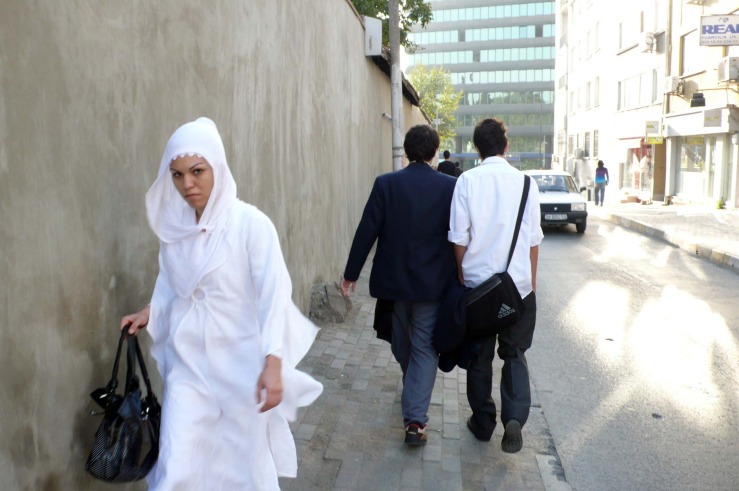No women in tuk-tuk land
Greetings,
Now here this. The tuk-tuk is leaving in five minutes. Departing for points unknown. A massive celestial event known as YOUR LIFE will depart in five minutes. You are advised to assemble all the necessary documents, certified seals of approval, water, guide books, sunscreen, funny money and so on...you will visit the following areas on your short, fast, easy tour.
Bring your life with you. And a guidebook with heavily creased pages. If you attempt to read while moving at the speed of light, 186,000 miles per second, you will discover a new sense of perspective.
You may be surprised or traumatized to realize your experience at Angkor is not about "seeing" the temples.
Please conclude various private and group discussions to ascertain your destination. The tuk-tuk driver has his helmet and vest. His vest has a green four-digit number. If he tries to bring you into Angkor without the vest he faces massive problems. For starters he will lose his job and have to return to his small, isolated village where he will plant rice. The biggest dream for many young men is to become a tuk-tuk driver.
If he loses his tuk-tuk job his family will starve to death. This is a common problem here. Death by starvation.
A tuk-tuk river driver has an easy job. An easy life. He drives you to a temple and crashes out. You feed him. He takes you back where you started. He makes $15-20 for the day. The average person's daily wage is $2.03.
Not a single woman in Siem Reap is a tuk-tuk driver. There are 3-4 women tuk-tuk drivers in Phnom Penh. They are as rare as clean drinking water, sanitation, hospitals and schools.
Why? A woman doesn't work as a tuk-tuk driver because:
- it's too dangerous
- it's inappropriate
- it's foolish
- they lack the education, intelligence, drive, initiative
- they haven't broken free of deeply ingrained social and cultural stereotypes: a woman's place is in the home, taking care of kids, washing, cleaning, and cooking.
Thirty years ago a woman was lucky to finish 9th grade. She married and stayed at home. It may take another generation before women become tuk-tuk drivers. So it goes.
Metta.

Lina studies Engineering in Phnom Penh.






 Share Article
Share Article 